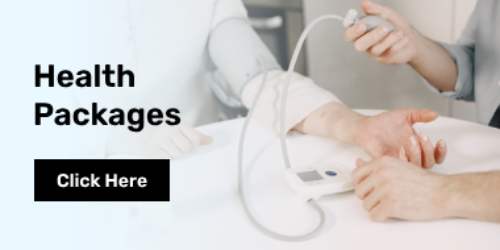What is a CRP Test?
C-reactive protein (CRP) is a substance produced by the liver in response to inflammation. A CRP test means measuring the levels of CRP in your blood to assess inflammation, which can indicate infections, autoimmune conditions, or chronic diseases.
The test is simple and involves drawing blood to analyze the CRP concentration. CRP levels are measured in milligrams per liter (mg/L). The normal CRP range is typically less than 10 mg/L, though slight variations may exist depending on the laboratory.

Why is a CRP Test Advised?
Doctors advise CRP tests to:
- Diagnose Infections: Elevated CRP levels can suggest bacterial or viral infections.
- Monitor Chronic Diseases: Conditions like rheumatoid arthritis (RA) or inflammatory bowel disease (IBD) can lead to sustained inflammation.
- Evaluate Heart Disease Risk: High-sensitivity CRP (hs-CRP) tests can indicate cardiovascular risk.
According to the American Heart Association (AHA), an hs-CRP level above 3 mg/L may indicate a higher risk of heart disease.
What Does CRP Test Positive Mean?
If a CRP test positive means that your CRP levels are elevated, it could be due to:
- Acute Infections: Bacterial pneumonia or sepsis can spike CRP levels significantly.
- Chronic Inflammatory Diseases: Lupus, RA, or IBD often lead to sustained elevations.
- Injury or Surgery Recovery: Tissue damage triggers a CRP spike.
While a positive CRP test indicates inflammation, it does not pinpoint the cause, necessitating further diagnostic tests.
What Are Normal CRP Levels, and What Do They Indicate?
- Less than 1 mg/L: Low risk of inflammation or heart disease.
- 1-3 mg/L: Moderate risk of cardiovascular disease.
- Above 3 mg/L: High risk of inflammation or heart disease.
For instance, during acute bacterial infections, CRP levels can exceed 100 mg/L. In contrast, viral infections may cause moderate increases between 10-40 mg/L.
What Happens if CRP Level is High?
If your CRP level is high, it may signal:
- Severe Infections: High CRP levels are common in bacterial infections like sepsis, requiring immediate intervention.
- Chronic Illness Flare-ups: Elevated CRP levels in RA or lupus might indicate disease exacerbation.
- Cardiovascular Risks: Persistent elevations can signal underlying atherosclerosis or heart disease risks.
High CRP levels warrant prompt medical attention to determine the underlying cause and initiate appropriate treatment.
What if the CRP Test is Positive?
A positive CRP test requires further investigation to identify the cause of inflammation. Common follow-ups include:
- Imaging tests like X-rays or MRIs.
- Comprehensive blood tests to check for infections or autoimmune markers.
- Biopsy or cultures if an infection is suspected.
What Infections Cause High CRP?
The CRP test is a nonspecific marker, meaning it cannot distinguish between infection types but typically rises during:
- Bacterial Infections: Pneumonia, urinary tract infections (UTIs), and meningitis.
- Viral Infections: Influenza or hepatitis.
- Fungal Infections: Severe cases of candidiasis.
In bacterial infections, CRP levels can be markedly higher than in viral ones.
What Factors Can Affect CRP Test Results?
Several factors can influence CRP levels, including:
- Age and Gender: Older individuals or females may naturally have slightly higher CRP levels.
- Lifestyle Choices: Smoking, obesity, and lack of physical activity can elevate CRP levels.
- Medical Conditions: Chronic diseases like diabetes and hypertension contribute to inflammation.
How Accurate is a CRP Test in Detecting Inflammation?
The CRP test is highly sensitive but nonspecific. It detects the presence of inflammation but does not determine the cause. Combining CRP tests with other diagnostic methods provides a clearer picture.
For example, a 2019 study published in The Journal of Clinical Medicine found that combining CRP with procalcitonin improved infection diagnostics accuracy.
How Does the CRP Test Compare to Other Inflammation Markers?
CRP tests are frequently compared to:
- Erythrocyte Sedimentation Rate (ESR): ESR measures red blood cell settling rate, which is slower but offers insights into chronic inflammation.
- Procalcitonin Tests: More specific to bacterial infections but less useful for other types of inflammation.
Both methods complement CRP tests, offering broader diagnostic perspectives.
How Can You Reduce Elevated CRP Levels?
Managing high CRP levels involves treating the root cause:
- Medications: Antibiotics for infections or anti-inflammatory drugs for autoimmune diseases.
- Lifestyle Changes: Adopting a healthy diet, exercising regularly, and quitting smoking.
- Stress Management: Chronic stress can elevate CRP levels.
Incorporating anti-inflammatory foods like omega-3-rich fish or leafy greens can naturally reduce CRP.
FAQ on CRP Test:
What happens if CRP level is high?
High CRP levels indicate significant inflammation, often due to infections, autoimmune diseases, or cardiovascular issues. Immediate medical evaluation is necessary.
What if the CRP test is positive?
A positive CRP test means inflammation is present. Doctors may order additional tests to identify the specific cause.
What infections cause high CRP?
Bacterial infections like pneumonia and sepsis typically cause sharp CRP elevations, while viral infections such as the flu cause moderate increases.
Wrapping Up:
The CRP test means understanding inflammation in the body, offering critical insights into infections, autoimmune diseases, and cardiovascular risks. While a CRP test positive means there is inflammation, further tests are essential to uncover the underlying cause. Always consult a healthcare provider for interpretation and appropriate medical advice.
Sources:
- American Heart Association – www.heart.org
- The Journal of Clinical Medicine – www.jcm.mdpi.com
- National Library of Medicine – www.ncbi.nlm.nih.gov



